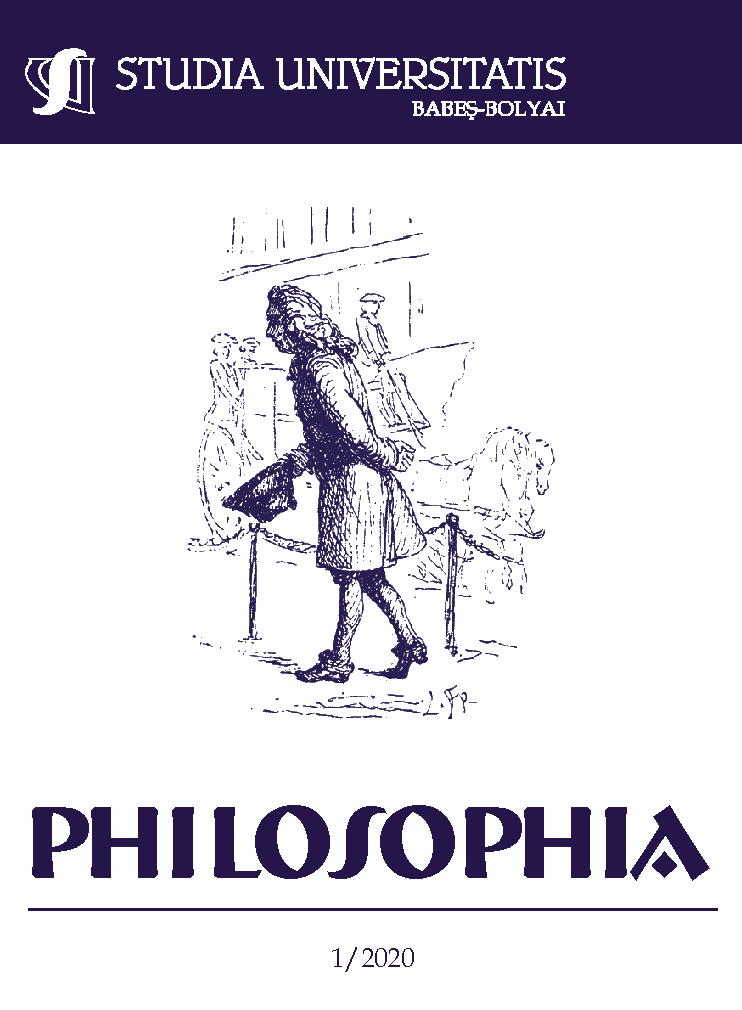WORLDS, OBJECTS, AND THEORIES OF FICTION
DOI:
https://doi.org/10.24193/subbphil.2020.1.03Keywords:
possible worlds, modal logic, modal metaphysics, fiction, David Lewis, Thomas PavelAbstract
The main aim of this paper is to provide a critical discussion of some key issues concerning the possible-world analysis of fiction. After a review of the most important philosophical questions concerning truth, reference, names and identity, and their bearing on fiction, I outline the possible-world framework, as used by David Lewis (1978) in his analysis, and examine its most important problems. A special interest is granted to the limits of the Lewisian pretense interpretation of fiction that are highlighted by works of cinema. I conclude with an appraisal of the puzzles generated by the attempts to draw borders between and within the worlds of fiction, and emphasize the need for a better mutual understanding of the two perspectives that are essential for a possible-world interpretation of fiction: literary theory and philosophy.
References
Doležel, L. 1998. Heterocosmica: Fiction and Possible Worlds. Baltimore, MD: Johns Hopkins University Press.
Kripke, S. A. 1963. “Semantical Considerations on Modal Logic.” Acta Philosophica Fennica 16: 83–94.
Kripke, S. A. 1980. Naming and Necessity. Cambridge, MA: Harvard University Press.
Kripke, S. A. 2011. “Vacuous Names and Fictional Entities.” In Philosophical Troubles: Collected Papers, Vol. 1, 52–74. New York: Oxford University Press.
Kripke, S. A. 2013. Reference and Existence: The John Locke Lectures for 1973. New York: Oxford University Press.
Le Poidevin, R. 1995. “Worlds Within Worlds? The Paradoxes of Embedded Fiction”. British Journal of Aesthetics, 35 (3): 227–238.
Lewis, D. K. 1978. “Truth in fiction.” American Philosophical Quarterly 15 (1): 37-46.
Lewis, D. K. 1983. “Postscript to “Truth in Fiction””, In: D. Lewis. Philosophical Papers. New York: Oxford University Press, 276–280.
Lewis, D. K. 1986. On the Plurality of Worlds. Wiley-Blackwell.
Maître, D. 1983. Literature and Possible Worlds. Middlesex: Middlesex Polytechnic Press.
Martin, T. L. 2004. Poiesis and Possible Worlds: A Study in Modality and Literary Theory. Toronto: University of Toronto Press.
Pavel, T. G. 1986. Fictional Worlds. Cambridge, MA: Harvard University Press.
Ronen, R. 1994. Possible Worlds in Literary Theory. Cambridge: Cambridge University Press.
Rusu, M. 2018. “Modal Epistemology, Realism About Modality, and the Imagination.” Studia UBB. Philosophia 63 (3): 67‐87.
Ryan, M.-L., 1991. Possible Worlds, Artificial Intelligence and Narrative Theory. Bloomington: Indiana University Press.
Ryan, M.-L. & Bell, A. 2019. “Introduction”. In: A. Bell & M.-L. Ryan, eds. Possible Worlds Theory and Contemporary Narratology. Lincoln and London: University of Nebraska Press, 1-43.
Searle, J. 1975. “The Logical Status of Fictional Discourse.” New Literary History 6: 319–32.
Downloads
Published
How to Cite
Issue
Section
License
Copyright (c) 2020 Studia Universitatis Babeș-Bolyai Philosophia

This work is licensed under a Creative Commons Attribution-NonCommercial-NoDerivatives 4.0 International License.





